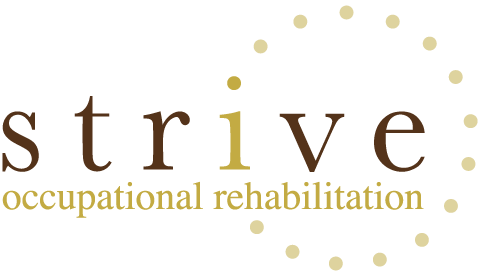
A lot of people are re-evaluating their relationship with work as they are either feeling that they are in the river or have just been pulled out and do not want to go back in. In my work, I explore with people how you go upstream to make work, work again. Over the next few months, we will explore my M.A.G.I.C. Framework that outlines the core drivers that will Make Work, Work Again. But before we begin this let’s take a moment to consider where we are in our working world.
A 2018 Gallup study revealed that 85% of employees function below their potential and don’t feel engaged at work.
Let’s sit with this for a moment and notice that that study was conducted in 2018; before the pandemic. I think it is all too easy to blame all of our working woes on the impact of COVID-19. Of course, there is no doubt it has resulted in an enormous disruption to our working lives but if we are going to “stop people falling in the river” we need to be really clear about the reason they were falling in and this research shows that we had lost our way well before 2020.
In my experience before the pandemic, there were a number of epidemics looming over organisations that prevented us from feeling supported at work and in turn from living fully satisfying and engaged lives. These three epidemics have taken their toll on our overall health and wellbeing and the productivity of individuals and teams in the workplace. They are:
- The mental health epidemic
- The loneliness epidemic
- The tech epidemic
Let’s look a little closer at the emergence of these three factors.

Firstly, the Mental Health Epidemic…
The World Health Organisation has indicated that depression and unipolar depressive disorders will move into the first place as the leading cause of the global burden of disease by 2030.
Let’s also remember that “burnout” was officially named as a syndrome by WHO in 2019.
When we can see our community headed in this direction it seems to contradict the research about the health benefits of work. In 2006, Gordon Wadell and Kim Burton were commissioned by the UK’s Department for Work and Pensions to conduct an independent review into the scientific evidence into whether work was good for your health and well-being. The research not surprisingly showed that unemployment had a negative impact on your physical and mental health and well-being. However, this research also importantly showed that in addition to supporting us from an economic perspective, work also contributed to our psychosocial needs, was central to our individual identity and supports our social roles and status and as such work was good not only for our physical health but also our mental health and well-being.
So, if work is what keeps us healthy and sane, where does the WHO data fit within these findings?

Let’s move on to examine the Loneliness Epidemic…
What does Loneliness mean in the 21st century? Dr Michelle H Lim MAPS Scientific Chair of the Australian Coalition to End Loneliness identifies it as the next public health epidemic of the 21st Century. The 2018 Australian Loneliness Report indicated that 1 in 4 Australians feel lonely each week. What impact you might ask, does this have on the workplace? In his book Lost Connections Johann Hari recounts the work of Dr John Cacioppa, Director of the Center for Cognitive and Social Neuroscience at the University of Chicago; his research shows that feeling lonely can cause our cortisol to soar as much as disturbing or traumatic events. Now imagine an office full of people feeling traumatised by loneliness even before they start their work day. You would think that a place where people come together and interact would naturally be able to counter loneliness — would have an impact on this impending threat — but if loneliness is on the rise as the research demonstrates, you might question how successfully workplaces are providing opportunities for people to connect to look toward one another at the person beside them, the person behind the position.
For those that feel this is not the responsibility of businesses then it may be of interest that people who are lonely are three times more likely to catch the flu. When you think of all that lost time together with the money spent on subsidised flu injections by companies (and this is without considering COVID-19) you might see a connection between a workforce that feels connected and your bottom line which may then spark your interest.

Finally, the tech epidemic…
In 2007 the average American spent 18 minutes on their phone by 2017 this had ballooned to four hours a day.
Simply put, tech is stealing our attention. I appreciate that workplaces might see this as a double-edged sword because of all the “advantages” that technology brings to our working lives. But surely attention is one of the bare minimum requirements that our workplaces can ask of us when we come to work; to be able to focus on what is in front of us. So, if technology has the power over our attention this does not sound promising for our business prospects. Further, Dr Sharon Horwood who is a Senior Lecturer in the School of Psychology at Deakin University points out that the mere presence of a smartphone or tablet can wreak havoc on our attention spans and throw our concentration off. Given the complexity of the times we are living in where we are facing challenges that no other generation has faced, we will need all of our executive functioning, all of our higher problem-solving abilities to find our ways through the next few years and this will require deep thought and the capacity to concentrate.
Undoubtedly, the Mental Health, Loneliness and Tech Epidemics have each played a role in how we have lost our way at work. Haven’t we all had that experience when we are talking to someone and a notification from their phone takes their attention away from us? I can’t help but think this is a very simple example that demonstrates how they are all intertwined. As we work to make work again, we have the perfect opportunity to keep these factors front of mind while we are planning for changes. It seems pretty clear that by impacting one of these you could very well be taking steps to address them all.
My M.A.G.I.C. Framework works both for teams and individuals and can be implemented at any and in fact every stage of a person’s life cycle at an organisation, right from the time they apply for the job until they leave. M.A.G.I.C. is the acronym for the principles that I have identified as missing from most people’s working lives by the time I get called in: Meaning, Authenticity, Ground Rules, I, and Curiosity. Over the next couple of months I am going to outline these in more detail, together with practical exercises that can help you to take the first step in Making Work Work Again.
To find out more head to sharondarmody.com

 The Great Resignation, or the ‘Great Re-Evaluation’?
The Great Resignation, or the ‘Great Re-Evaluation’?